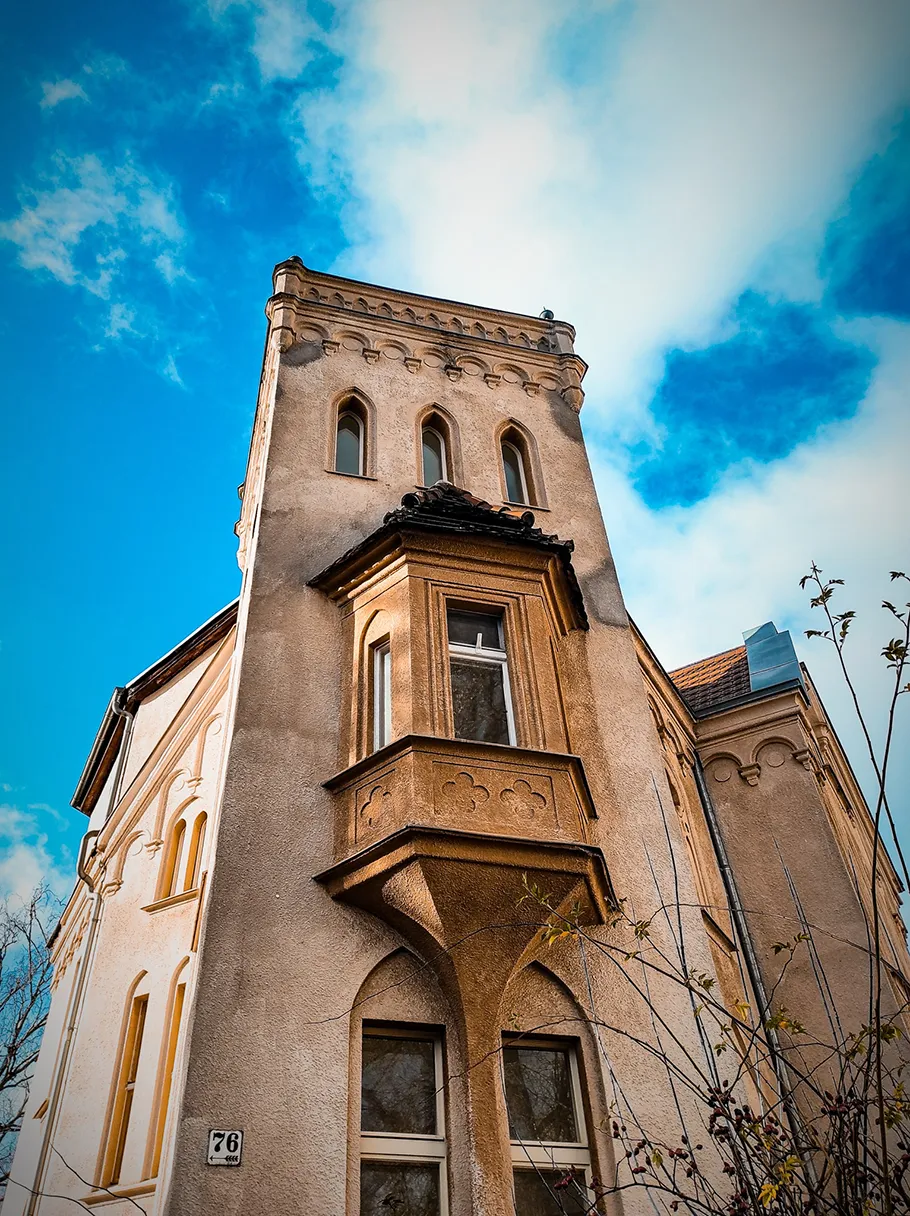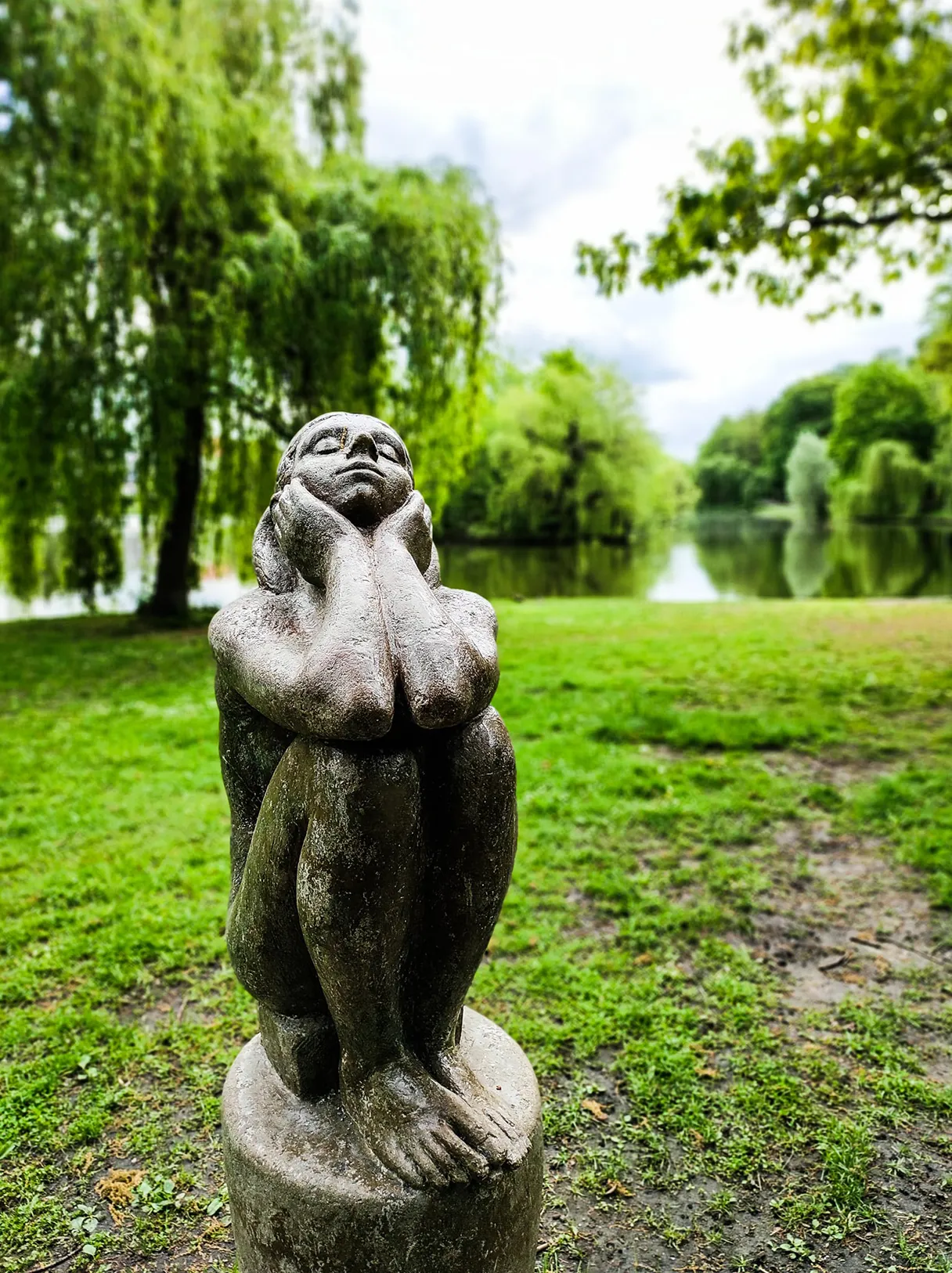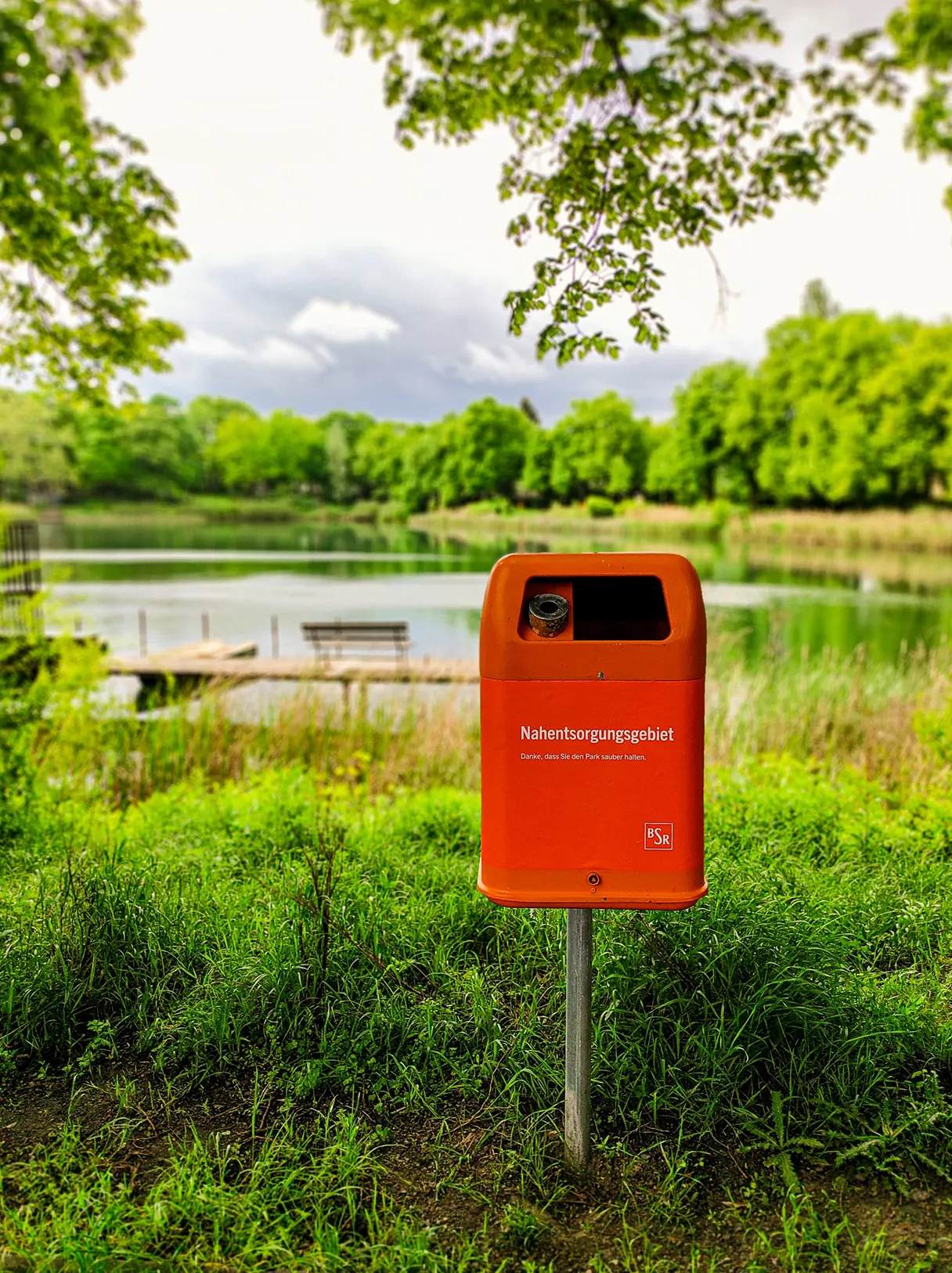 Photo: Stefanie Jost
Photo: Stefanie Jost
96 Berlin boroughs in a row: A for Alt-Hohenschönhausen
Old or new? Hohenschönhausen can do both.
Today, we introduce you to Alt-Hohenschönhausen in our series of Berlin districts.
 Photo: Stefanie Jost
Photo: Stefanie Jost
📌 Facts:
- Area: 9,3 km²
- Celebreties: Paul Schmidt (invented the flashlight and dry cell battery)
- Sights: Hohenschönhausen Memorial (former Stasi detention center), Taborkirche, Hohenschönhausen Castle, Mies van der Rohe House.
Alt-Hohenschönhausen is an architectural patchwork, which in addition to prefabricated slab and housing estate buildings also offers the "Wannsee of the North" with villas on the lake. The first prefabricated slab buildings were built starting in 1972, followed by the Hohenschönhausen I & II complexes by 1984. Approximately 8,000 apartments were built for about 25,000 people.
 Photo: Stefanie Jost
Photo: Stefanie Jost
"Although attention was paid to harmony between the village center and the new housing development, the implementation turned out to be less harmonious. The image of the old village was destroyed by the widening of the main street. Some houses, the Tabor church, and the castle have been preserved and are protected monuments. With its beautiful interior, the Tabor Church is one of the oldest preserved monuments in the district."
 Photo: Stefanie Jost
Photo: Stefanie Jost
Since 2000, it has been possible to visit the Hohenschönhausen Memorial. The historic site at Genslerstraße 66 is closely intertwined with the history of the GDR. Since large parts of the buildings and furnishings have been preserved almost intact, the memorial conveys a very authentic picture of the prison regime in the GDR. The permanent exhibition uses numerous original exhibits to deal with the reality of life for prisoners in the Stasi prison. The permanent exhibition "Imprisoned in Hohenschönhausen" in the main building is completely barrier-free and accessible free of charge. (Source: www.berlin.de)
